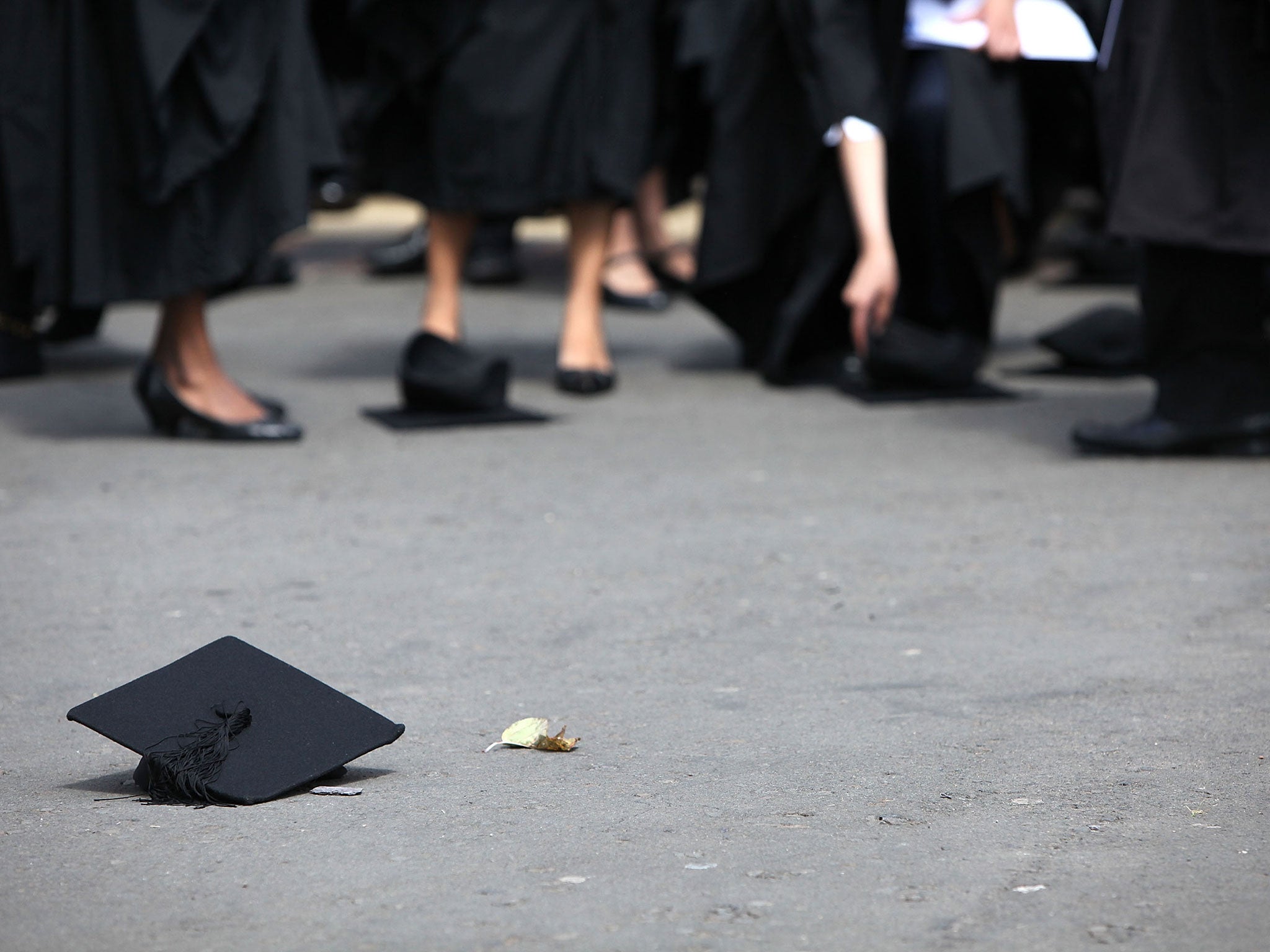Student Loans Company forced to repay millions after overcharging graduates
The government-owned company has repaid £225m to former students since the 2011-12 academic year – an average refund of £690 per person

More than 300,000 graduates have received refunds from the Student Loans Company within the past five years after it emerged they had be wrongly charged.
The government-owned company has been made to hand back more than £225m since the 2011-12 academic year – an average refund of £690 per person.
A Freedom of Information request revealed the organisation was forced to return £53m to some 77,0000 affected graduates in the past year alone.
The number of former students being overcharged had risen by almost 50 per cent since 2011-12, with many more graduates likely to be affected as a result of the way in which repayments are managed.
Shadow Education Secretary Angela Rayner accused the SLC of making a “colossal blunder”, and criticised the company for appearing unwilling to help former students reclaim money owed.
The overcharging is said to be a result of payments taken by the SLC for balances that had already been paid off. Some students were also entitled to refunds because they had been charged by the company despite earning below the annual repayment threshold.
The issue has been blamed on the fact student loan repayments are collected through the tax system, which is only updated by Revenue and Customs once a year. Any graduates who lose their jobs or suddenly fall below the minimum salary threshold are at risk of being overcharged until the change is picked up – sometimes months later.
A Students Loans Company spokesperson said: “If we find out that a borrower has overpaid, we will get in touch with them using the latest contact information they have on their account. This will allow us to provide a refund promptly.
"There are various ways to keep a check on repayments.”
Responding to the reports, former NUS President turned Labour MP Wes Streeting said he also had to “ring several times over 6 months” to get his overpayments addressed.
Sorana Vieru, the National Union of Students vice president for higher education, added: "There are a number of problems with the student loans repayment system and the government should be making an effort to fix the processing issues.However, these shouldn’t detract from the most damaging proposal students are facing, which is the changes to the student loan repayment threshold."
In October last year, the government announced it would not be increasing the minimum salary threshold required for graduates to start paying off their loans, in spite of previous promises.
As part of the student loan contract, graduates must start repaying loans once they earn above £21,000 per year.
The amount has been frozen since 2012 despite a fall in the average graduate salary, meaning the average earning former student will pay £306 a year more in 2020-21 compared with 2016-17
Ms Vieru added: “The system is not progressive if the government needs to go back and tinker with the terms and conditions in order to recoup money. The plan to freeze the repayment threshold is a betrayal of students and part of a long list of political measures that show complete disdain for students and their futures."
Students in England are said to have the highest amount of student debt in the world, with recent graduates owing an average of £45,000 or more upon finishing their course.
Join our commenting forum
Join thought-provoking conversations, follow other Independent readers and see their replies
Comments